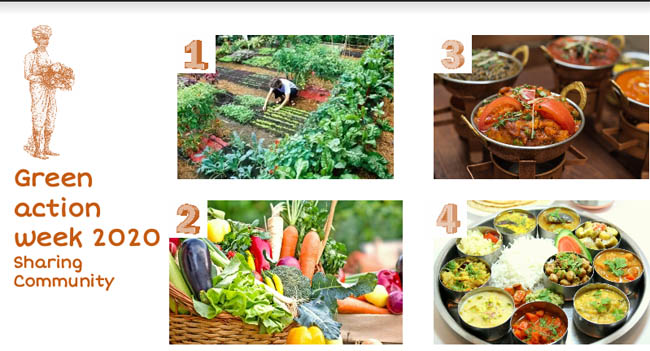Green Action Week (GAW), observed each year during first week of October ,is a global people’s campaign to promote sustainable consumption and circular economy in the society.Keeping in view the COVID-19 situation in mind Jeevan Rekha Parishad (JRP) in partnership with CUTs International has started an innovative GAW campaign titled “Seniors for Green and Sustainable Consumption” in Bhubaneswar smart city. Under the campaign, there is a plan to develop more than 25 organic roof top gardens with beekeeping for crop pollination. On a pilot basis ,25 senior citizen supported by 25 Youth Agri-Entrepreneurs, Beekeepers and Agri- experts will be assisted to develop their organic roof top gardens with beekeeping infrastructure. Nimisha Sharma, Programme Officer, CUTS International, MR Mishra, Director JRP, Maheswar Khillar, Director KGA, Ekadashu Nandi, Agri-Expert, Ashok Das, Director, Sankalp TV, Nadia Moghbelpour, President, IWC Bhubaneswar, Madhusmita Mishra, Secretary, JRP & IWC Bhubaneswar, Bijayaram Mahapatra, Agri-Entrepreneurs, Ms. Keeny Mahapatra, Social Activist, P.Srinivas, Senior Scientist and Director PLA spoke on the occasion on various topics to promote rooftop organic gardens including Kitchen Gardens Vertical Gardens and beekeeping and create green color jobs among senior citizen and youth .. The theme of this year’s campaign is “Sharing Community” for which a sharing campaign plan was developed where the people can share with each other the unused household materials which can be reused in the roof top gardens. During this campaign and during the pilot project it is expected that more than 25 rooftop organic gardens with beekeeping will be developed in Bhubaneswar Smart City and the concept of sharing like art of giving will be promoted in the community. This year’s campaign is positioned in the context of COVID-19 and due to increased use of masks, gloves, face shields, PPE kits, sanitizer bottles etc we are facing a great challenge of disposal of COVID wastes. The plastic waste is expected to be 9.4 million tons in 2020. Since work and education had gone online, use of electronic gadgets increased tremulously, sale of laptops in India itself increased to a great extend beyond imagination. It is estimated that India will generate 5.2 million tons of e-waste by 2021. Use of personal vehicles, due to lack of public transport and physical distancing norms, in increased to more than the pre pandemic levels. There is 70-80% increase in the production and consumption organic products, as consumers consider immunity as ammunition to fight the virus.


